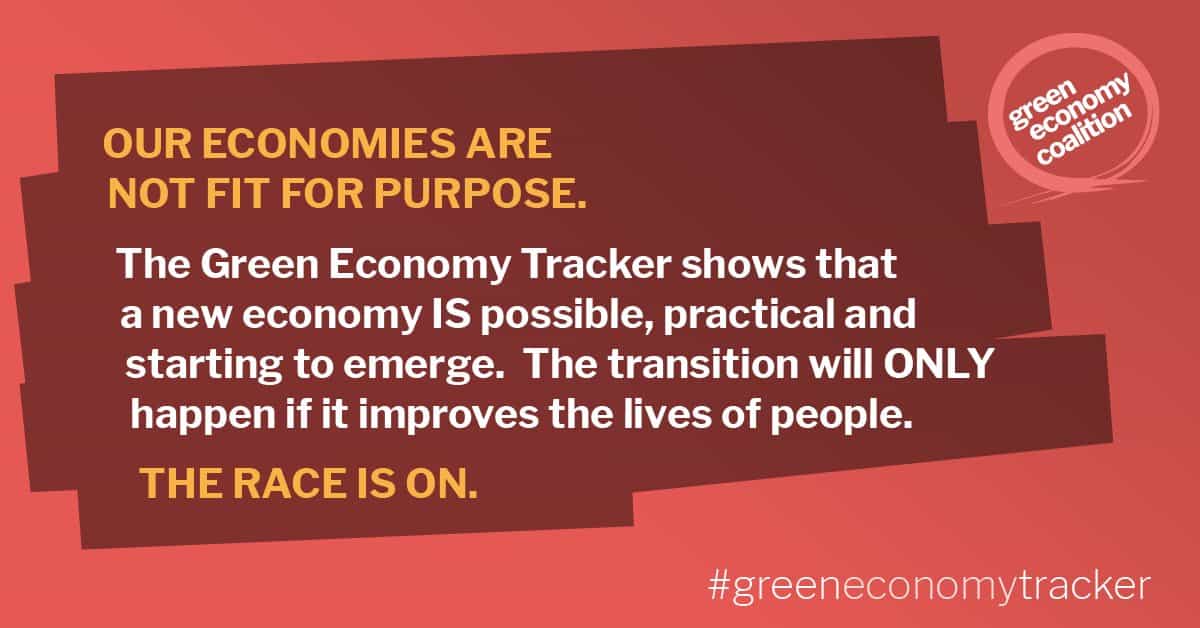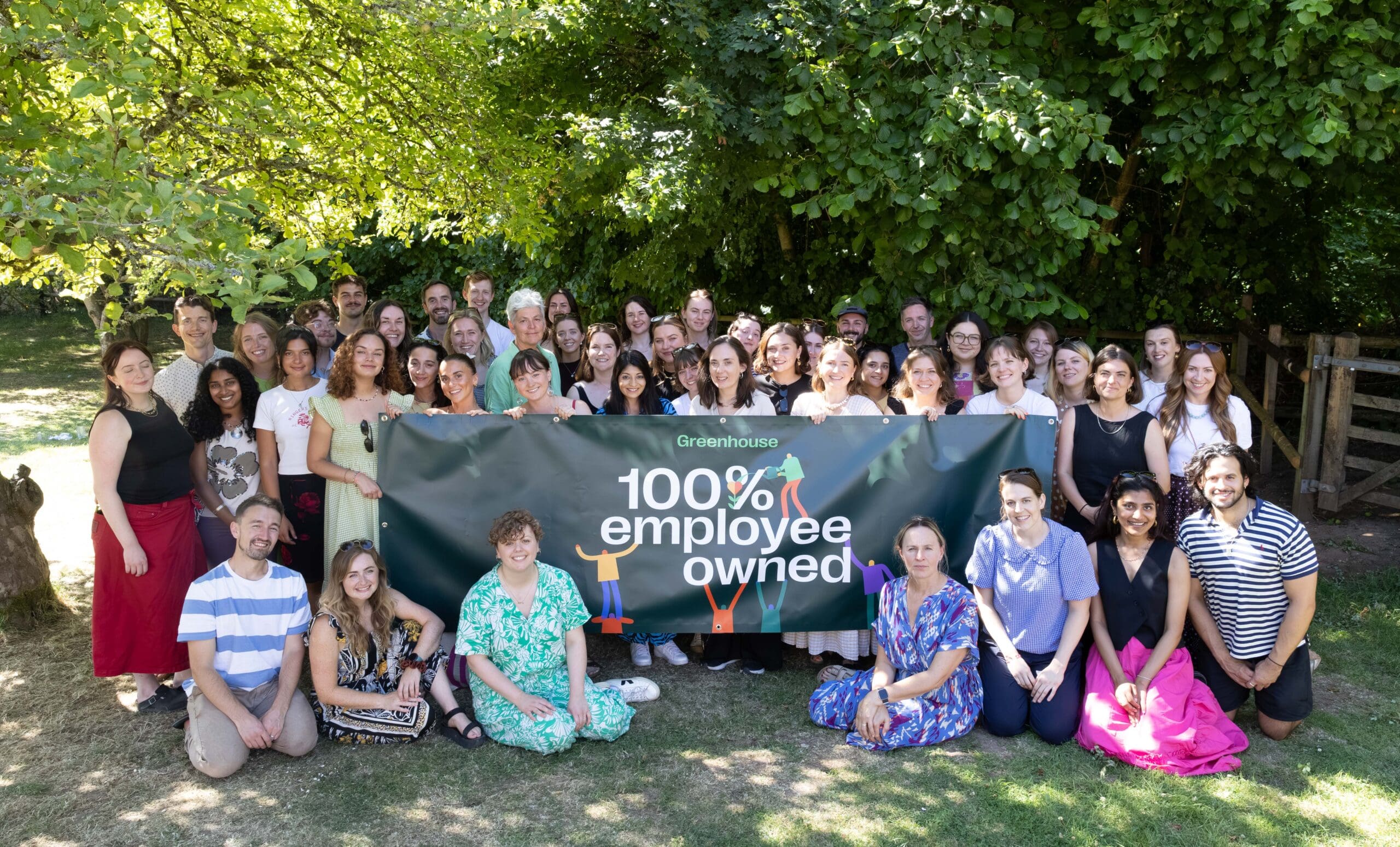Greta vs Trump: Climate highlights from Davos 2020

This week saw the most powerful people in the world gather in Davos, Switzerland for the 50th Annual Meeting of the World Economic Forum (WEF). Unlike previous years, the climate crisis dominated Davos, with “climate change”, “positive” and “impact” trending on Twitter all week. As the billionaires shake the melting snow off their boots for the last time, here’s a summary of the climate highlights from Davos 2020.
Following a year of extreme weather disasters, record breaking heat and a mass public shift in climate awareness, this year’s WEF was always going to be different. But it was WEF’s annual Global Risks Report – which revealed the world’s top five threats to economic and political stability are all related to climate change – that cemented it into the agenda. With WEF Founder Professor Klaus Schwab even telling the Financial Times he wants to convince attendees to only finance investments “that are environmentally not damaging”, we expected significant climate highlights from Davos 2020.
While activists travelling for days by train to camp at a sub-zero basecamp in Davos caught the spotlight, the first big climate headlines came from Greta Thunberg’s speech on Tuesday. She told the gathered business and government leaders she will keep repeating the bleak IPCC numbers until her audience members act with the urgency required to keep humanity safe.
“Let’s be clear. We don’t need a ‘low carbon economy’. We don’t need to ‘lower emissions’. Our emissions have to stop if we are to have a chance to stay below the 1.5-degree target. And, until we have the technologies that at scale can put our emissions to minus, then we must forget about net zero. We need real zero.”
Greta Thunberg made three clear demands: “Immediately halt all investments in fossil fuel exploration and extraction. Immediately end all fossil fuel subsidies. And immediately and completely divest from fossil fuels.”
The young activist concluded with a warning that echoed across social media all week: “I wonder, what will you tell your children was the reason to fail and leave them facing a climate chaos that you knowingly brought upon them? That it seemed so bad for the economy that we decided to resign the idea of securing future living conditions without even trying?
“Our house is still on fire. Your inaction is fuelling the flames by the hour. And we are telling you to act as if you loved your children above all else.”
TRUMP VS GRETA
President Trump made a rare commitment to climate action in his speech – despite pulling the US out of the Paris Agreement, as Greta had mentioned moments before. He said the country is “committed to conserving the majesty of God’s creation and the natural beauty of our world” and is joining the One Trillion Trees Initiative. He then tried to hit back at Greta by slamming “prophets of doom and their predictions of the apocalypse”.
Apart from Steven Mnuchin, US Secretary of the Treasury, who made a triggered remark that Greta Thunberg isn’t an economist, all other leaders from around the world responded promisingly to the message of urgency. (Side note: it was unanimously agreed that it’s Steven, not Greta, who should listen to economists on climate.)
Angela Merkel, Chancellor of Germany spoke later in the week. She said “time is of the essence and we are called upon to act now” to achieve sustainability for all generations. Significantly, Merkel said that as a rich country, it is Germany’s responsibility to support sustainable development in other parts of the world.
While Greta vs Trump was entertaining, one of the most unexpected climate highlights from Davos 2020 was on Wednesday, when HRH The Prince of Wales gave a widely applauded keynote address – his first in 30 years. He called for a “paradigm shift” in the global economy to avert climate catastrophe, and announced the launch of the Sustainable Markets Initiative and Council in collaboration with the World Economic Forum.
ECONOMIC CHANGE
Antonio Guterres, Secretary-General, United Nations, shared a similar message to Greta Thunberg of necessary climate “doom”, stating: “If I had to use two words to describe the state of the world it would be uncertainty and instability. […] We will be destroyed by climate change, not the planet.”
But the UN chief shared hope the public and private sectors can transform “the way we produce our food, power our economy, move, support industry and plan our cities”, in order to reach the emissions reductions the “scientific community tells us it is absolutely essential to do”.
It’s clear from Davos that markets are changing, with the topic of climate risk unavoidable at most sessions. Billionaire businessman George Soros said the climate crisis threatens civilisation, and is the inspiration behind his announcement to commit $1 billion to a global open university aimed at combating global warming and the rise of authoritarian governments.
But as Larry Fink explained during a session on Thursday, that didn’t stop the chairman and CEO of BlackRock, the world’s biggest asset management firm, fearing backlash to his open letter last week. The CEO had warned the climate crisis is the biggest threat to markets, and inaction means we now stand “on the edge of a fundamental reshaping of finance”. Industry support for such an economic shift is only just beginning.
CLIMATE STATS
During WEF a number of significant reports were published which highlight the gaps in climate ambition that still exist. The Green Economy Tracker was launched, which is the first tool to benchmark how countries are transitioning to greener, fairer economies.
The Tracker revealed that while many countries are leading the way, there are huge strides to be made. “Our global economy is not fit for purpose and is driving social and environmental breakdown,” The Green Economy Coalition’s convenor Oliver Greenfield summarised. “Within a generation, we need to move to a green and fair economy that respects nature’s limits and prioritises wellbeing.”

Greenhouse also launched The Circularity Gap 2020 report by Circle Economy at Davos. The report shows that the global economy is consuming 100 billion tonnes of materials a year for the first time ever – but re-use of resources has gone into reverse, with “the world’s economy now only 8.6% circular”. The report received widespread media coverage around the world, with over 100 pieces of coverage including The Guardian, The i, The Daily Telegraph, CNBC Africa, BBC World Service and Russia Today.
Unfortunately, the stark climate numbers get even bigger. FT’s Moral Money reported from Davos that companies are nowhere near prepared for the total $4 trillion cost of a $75 per tonne global carbon tax — the level IMF officials told delegates is needed to keep global temperature rise below 2C. “Simply put, this is a cost that global businesses have not factored in. And they need to,” said David Craig, chief executive of Refinitiv, which calculated the costs.
WEF came to a close today, with billionaires flying their private jets over Greta Thunberg down below, as she led her 75th week of Fridays for Future school strikes. When they get home they must act.
Next year when the world’s elite meet again, we can only hope ambitions were ramped up enough through 2020 toward the COP26 climate talks, that the Swiss mountains of Davos are still covered in snow. But with this many invigorated power players, our hopes are high for action that puts people and planet first.
Greenhouse PR works with organisations and leaders who are pioneering climate action. Whether it’s energy, fashion, finance or farming, if you’ve got a great story and need our help to tell it, get in touch with the Greenhouse team on 0117 214 1250 or email info@greenhousepr.co.uk.


